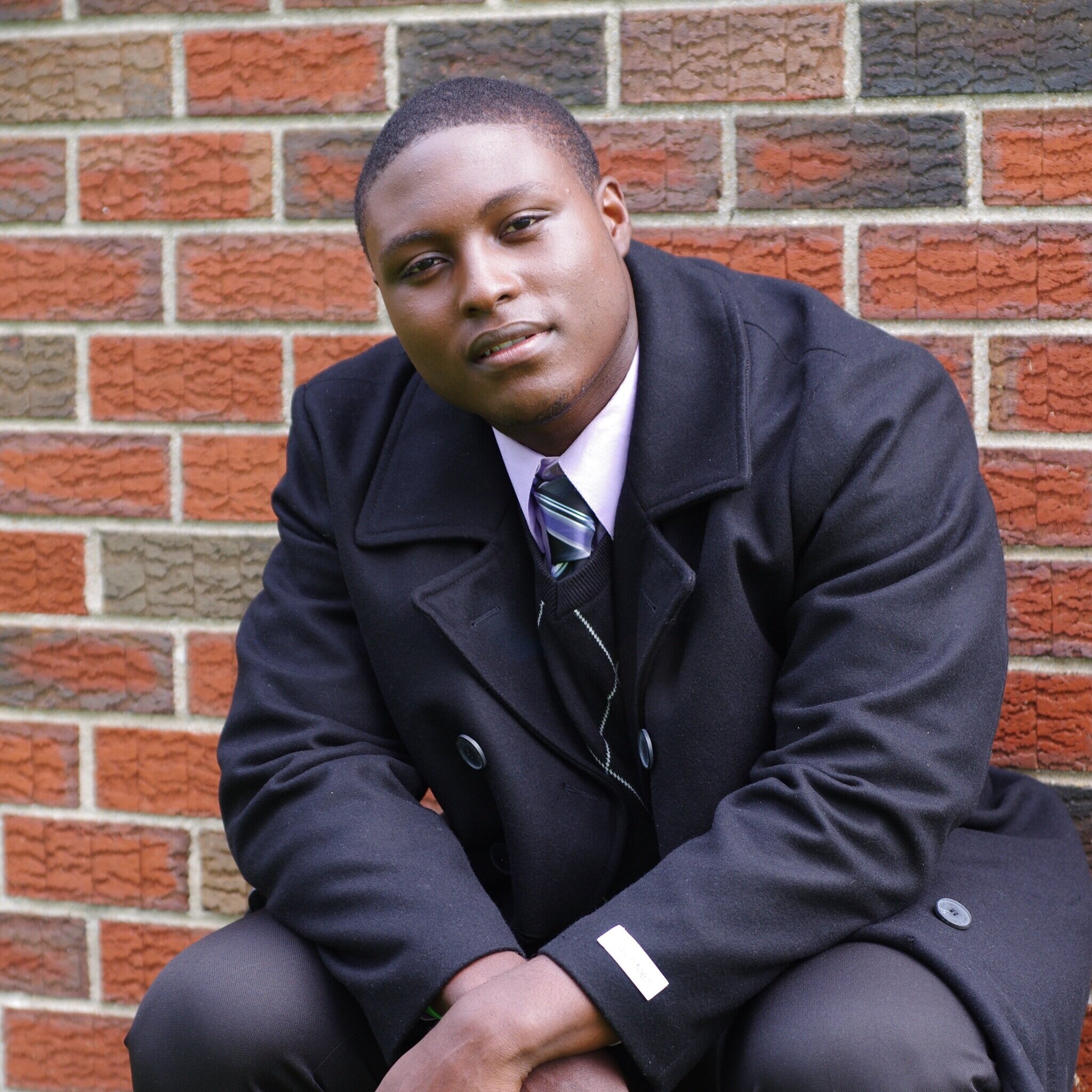
In a perfect world, every boy would grow under the guidance of a loving father. They would all have a living example of how to wield their masculinity with confidence and responsibility.
Unfortunately, the world isn’t perfect, and many don’t have that example.
I know this because I was that boy, so I know first-hand the harrowing impact that fatherlessness can have on boys and the men that they become.
The statistical consensus regarding boys with absent fathers is that they are, on average:
-
Four times more likely to be raised in poverty.
-
Ten times more likely to abuse drugs and alcohol.
-
Two times more likely to commit suicide.
-
Nine times more likely to drop out of school.
The consequences of fatherlessness produce a ripple effect that drastically alters the quality and outcome of one’s life.
I was lucky, as I’ve only experienced one out of the four aforementioned statistics. Yet like many, I grew into my manhood rather clumsily; I stumbled, slipped, and even hurt myself (emotionally) in the process.
I lived for so long feeling as though there was a void in my soul that could only be filled by my dad.
At the time, I didn’t even realize how I felt. So, I developed so many issues regarding my confidence and self-worth that went unchecked for years.
Can you relate to any of this?
If so, then I see you, I know your pain, and I will show you the bright side to all of it.
Despite it all, our shared experience of fatherlessness can still be salvaged for good, it is never too late.
Two Types of Fatherlessness
It’s imperative to understand the circumstantial differences regarding the absence of paternal support and the correlation it bears to how a child will develop and the types of problems they will struggle with.
This doesn’t mean that these issues are unique to the particular circumstance, simply more likely to occur within that setting.
So, there are two types of fatherlessness. Growing up, I had the misfortune of experiencing both types.
1. The Absent father
My earliest, oldest, and only memory of my father, my “real “ father, was when I was about six or seven years old. He came to visit my mother and our family at our home in Ghana.
I distinctly remember that he brought with him a brightly colored, maybe yellow, toy motorcycle that had a helmeted driver mounted on it.
I loved it, my father bought me a new toy! It was so cool and I was so happy.
We spent the rest of the night in a lighthearted mood, smiling and making jokes that flew way over my little head. I felt a familial warmth within the room that night.
After that, he left, and I never saw him again…
I didn’t know it at the time, but he was the absent father. The father who was never, or barely ever, present in their child’s life.
I was left confused as to why he was no longer around yet strangely keen to the fact that something was wrong and that it involved me.
Father’s like this, like mine, leave young boys with an emotional deficit. This may lead to feelings of low-self worth, being unwanted, and abandonment issues during adolescence and adulthood.
I experienced this and it dealt a huge blow to my ego. I even allowed myself to be bullied in my youth because I simply thought that that was my position.
2. The Bad Father
With my “real” father out of my life, my mother and I moved to America. Shortly after, around age nine, she married my step-father.
He was the bad father, the father who was there but never present, and even worse, an overall negative influence.
He only ever spoke to me when he was ordering me to do something for him or berating me for not doing it right. He was aggressive, violent, distant, and unconcerned with anyone else’s life but his own.
Many who have dealt with the bad father may develop anger issues or violent tendencies. I myself was never violent, but I had so much anger within me.
The sadness of not knowing my real father became anger towards my step-father.
The void within me became a raging pit.
I boiled with envy every time I would look at the relationships that my friends and family had with their fathers.
It made me wonder, “why can’t I have that? Do I not deserve it?”
I unwittingly closed myself off from others, men and boys because I felt inferior, and women and girls because I felt anxious.
I measured my masculinity against that of every male around me, explaining away my shortcomings with my lack of a father.
Again I ask, can you relate?
The Burden of Proof
A constant that I have noticed both in myself and men who grew up without a positive male role model is that we tend to live with weight on our shoulders.
We live with the burden of proving that we are better men than our fathers.
When your identity has been so deeply scarred by the absence of another, the automatic response is to attempt to differentiate yourself apart from that person. It can manifest in a few ways.
It might be a desire:
-
To prove to yourself that you are different from your father.
-
To prove to others that you are an ideal man.
-
To show how unbothered you are by your father’s absence.
-
To make your father regret not being in your life.
I primarily manifested the first and last responses as a boy, and, even as a man, I’ve struggled with these burdens.
I believed that I needed to live a life so great that it would be obvious how different I was from my step-father. And I felt that I needed to shine so brightly, be so successful, that my actual father would see me and feel terrible for not being in my life.
If you’ve manifested your burden in any of the ways above, I say to you, wake up now!
What you are doing, what I once did, is not proving anything to anyone, not yourself, and definitely not your father.
This pattern can easily be mistaken as a positive force on the psyche. Your acute awareness of that man’s mistakes can make acting in direct opposition to them feel good.
In those moments, you feel that you are actually better than your absent father.
Maybe you are, but that isn’t the point.
The point is that, in that state, you are a prisoner.
By living your life trying to surpass or prove yourself to your father, you’re actually shackling yourself to him.
You will live subconsciously bound to your memory of him, or rather, the lack thereof. Your life long-mission to not be him, or be better than him, will be the tether to the pain of him not being there for you.
So when you fail, your losses will seem heavier and when you succeed, it’ll never feel like enough.
I was fortunate, in my youth, I was very aware of myself. But others may not fare so well.
When you live unaware that you’re tethered to the shade of an absent man who has hurt you, you run the risk of becoming just like him.
So, develop the will to let go.
In David Deida’s book, The Way of The Superior Man, he challenges the reader (hopefully you) to live as if their (your) father were dead.
He says, “Now that he is dead… How would you have lived differently if you have never tried to please your father? If you have never tried to show your father that you were worthy? If you never felt burdened… ?”
So I’ll challenge you, respond to these questions, and live your life for the next week according to your answers.
Observe how you feel afterward.
The Silver Linings
I won’t make the claim that fatherlessness can be a good thing, but it doesn’t always have to be a bad thing.
There are a few things that can help you immensely come to terms with your situation.
The first of which is your mother.
Not everyone has a loving one, but for those that do, practice gratitude towards her. My mother was, and still is, a strong woman who did her best to play both roles.
She gave me a level of guidance, care, support, and understanding that I rarely saw elsewhere. While I did at times feel jealous of my friends with fathers, I NEVER once felt jealous because of their mothers.
In fact, I felt proud. In that department, they couldn’t compete with me, I was better off and I’ve never forgotten that fact.
If you can relate to that experience, when you see your mother, smile, and say thank you. Because her presence helped you more than you might know.
Secondly, you now possess what I call The Bad Father Blueprint.
Whether you had an absent father or a bad one, you now understand the effects that your presence can have on a child.
You know how a child, especially a boy, will feel if you’re not present, if you’re always angry, or if you don’t care enough to be a role model.
Personally, I feel that I’m going to be a kick-ass dad.
And why?
Well, because I was shown by two sub-par examples exactly what I shouldn’t do. I have learned from their mistakes and will not repeat them.
Lastly, you’ve had to father yourself for most of your life. But I’m sure that at times, you leaned on other men who provided that positive influence that you subconsciously craved.
That could’ve been an older family member, a mentor, or even a coach. For me, it was my uncle (Thanks Uncle Owen).
This is an opportunity for you to become a beacon for someone else just like they were for you. Even if you’re still going through your struggle, you can still help someone with theirs.
So yes, we were once boys without fathers, but now we are men with the responsibility to live freely.
So for your sake and the sake of all young boys growing up without fathers… do just that.

Ian Gyan
Freelance Copywriter
About the Author
Ian is a Freelance Copywriter. He helps compassionate coaches and leaders reclaim their time, energy, and confidence by creating content strategies that help them channel their higher purpose. A free-thinking ambivert, Ian encourages individuals to walk the path of open-mindedness, compassion, balance, and self-mastery. He loves to exercise, meditate, and cook. He is also an avid reader, writer, poet, and gamer. He currently resides in New Jersey.